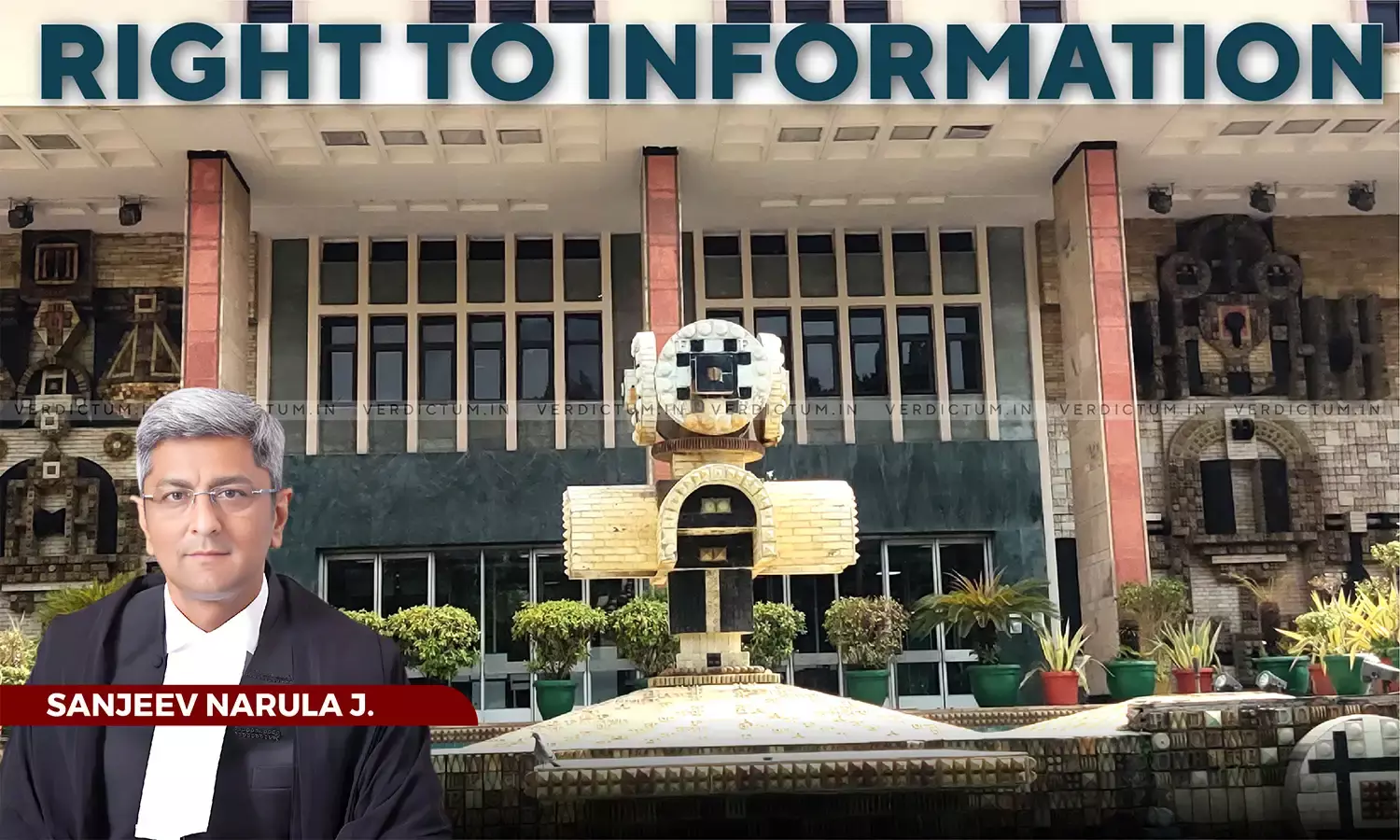Air Force Sports Complex Not A 'Public Authority' Under RTI Act: Delhi High Court
The Delhi High Court has ruled that the Air Force Sports Complex (AFSC) is not a 'public authority' under the Right to Information (RTI) Act, 2005, observing that the government neither exercises significant control over AFSC's operations nor substantially finances its activities.
"The Court is of the opinion that AFSC does not meet the criteria to be classified as a ‘public authority’ under Section 2(h) of the RTI Act. AFSC is not owned or established by the government. There is no deep and pervasive governmental control over AFSC’s management or policies, and neither does AFSC perform public functions or duties, as its services are limited to a specific group and do not serve the public at large. AFSC does not receive significant government funding essential for its operations, and the use of government land in itself does not constitute substantial financing. Thus, in the opinion of the Court, the CIC has erroneously concluded that the AFSC qualifies as ‘public authority’ under Section 2(h) of the RTI Act, based on an incorrect application of the law and a misinterpretation of the facts," the Court observed.
The Single-Bench of Justice Sanjeev Narula delivered the judgment while hearing AFSC’s challenge to an order by the Central Information Commission (CIC), which had previously declared the sports complex a public authority under the RTI Act.
The CIC had based its decision on the fact that AFSC operates on government land and serves Air Force officers, suggesting significant governmental control and financing.
The case arose from an RTI application filed by a retired Indian Air Force officer seeking details regarding the alleged misuse of AFSC’s land. While the Central Public Information Officer (CPIO) of Air Headquarters provided some information, it clarified that AFSC was not a public authority under the RTI Act. The officer’s appeal was dismissed by the First Appellate Authority, prompting a second appeal to the CIC, which then ruled AFSC as a public authority.
The Court, however, disagreed with the CIC’s assessment. It noted that under Section 2(h) of the RTI Act, a public authority must either be established by law or substantially owned, controlled, or funded by the government. The Court found that AFSC was neither created by any legal statute nor owned by the government.
Referring to a Supreme Court judgment in Thalappalam Service Coop. Bank Ltd. v. State of Kerala (2013) 16 SCC 82, the Single-Judge emphasized that the government's control over AFSC was limited to regulatory oversight, which did not equate to the substantial control necessary to categorize it as a public authority. The mere presence of Air Force officers in AFSC’s management was deemed insufficient to demonstrate pervasive government control.
The Court also addressed the issue of whether AFSC was substantially financed by the government, concluding that AFSC’s operations are largely sustained by member contributions and subscriptions. It further ruled that the mere provision of government land does not constitute substantial financing unless the organization’s survival is entirely dependent on such support, which was not the case for AFSC.
Conclusively, the Court quashed the CIC’s order, stating that AFSC operates autonomously and is financially independent from the government, thus not falling within the purview of the RTI Act. "...the present petition is allowed, and the Impugned Order dated 19th June, 2014 of the CIC is hereby set aside. It is declared that AFSC is not obligated to comply with the provisions of the RTI Act," the Court ordered.
Cause Title: Air Force Sports Complex (AFSC) v. Lt Gen S S Dahiya [Neutral Citation No. 2024: DHC: 7664]
Appearance:-
Petitioner: Advocates Ankur Chhibber, Anshuman Mehrotra
Respondent: Advocates Shivain Vaidialingam, Arti Bansal, Pinky Yadav, Akanksha Kumari
Click here to read/download the Judgment












